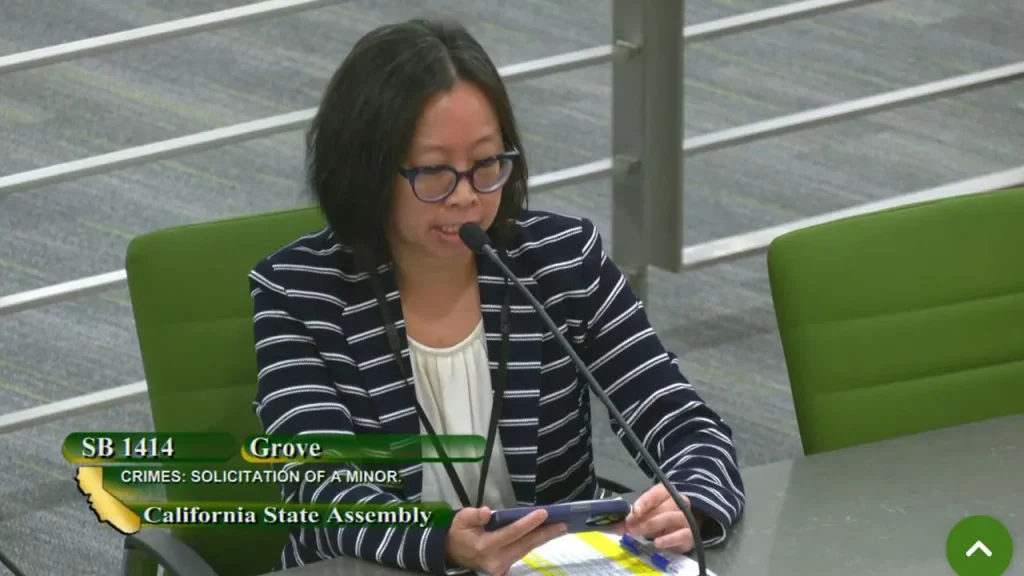A bill that would increase penalties for child sex buyers in California is facing potential death due to concerns from state finance officials over the costs of housing additional prison inmates. Republican state Sen. Shannon Grove introduced Senate Bill 1414, which would allow prosecutors to charge adults soliciting minors with a felony, resulting in up to three years in prison and a $10,000 fine. The bill also requires adults convicted multiple times of soliciting a minor to register as a sex offender. The current law considers soliciting a minor for sex a misdemeanor with minimal penalties.
During an Assembly Appropriations Committee hearing, a California Department of Finance official opposed the bill citing concerns about increasing the prison population and associated costs. The official stated that the state has made progress in right-sizing the prison system and increasing the population could threaten this progress. Grove and other lawmakers have dismissed these financial concerns, emphasizing that combating child sex trafficking is a significant problem that needs to be addressed.
Despite the financial concerns, California Governor Gavin Newsom supports the bill, stating that it is standard practice for the Department of Finance to oppose bills with fiscal impacts that are not addressed in the budget. The governor’s office emphasized that his support for the bill is not a position on policy or merits. California state Assembly Republican leader James Gallagher echoed the sentiment that child sex trafficking should not be a financial question but a matter of right and wrong, especially considering the state’s spending on other initiatives like addressing homelessness and high-speed rail projects.
In addition to financial challenges, SB 1414 faced amendments from the Democratic-controlled Senate Public Safety Committee, which resulted in the exclusion of 16 and 17-year-olds from the protection provided by the bill. These individuals must now prove that they are victims of trafficking in order for perpetrators to be charged. Grove has expressed disappointment over this change and the impact it may have on addressing child sex trafficking in the state. Lawmakers and advocates have called for a focus on the moral implications of the issue rather than solely on financial concerns.
Despite the obstacles facing SB 1414, supporters of the bill, including Gov. Newsom and various lawmakers, continue to push for its passage. They argue that the costs associated with increasing penalties for child sex buyers are justified in the fight against a pervasive issue in the state. Lawmakers have criticized the state’s priorities, pointing to the billions of dollars spent on other initiatives while hesitating to allocate funds to combat child sex trafficking. The debate over this bill highlights the challenges and complexities of addressing sensitive and pressing social issues within the confines of government bureaucracy and budget constraints.













